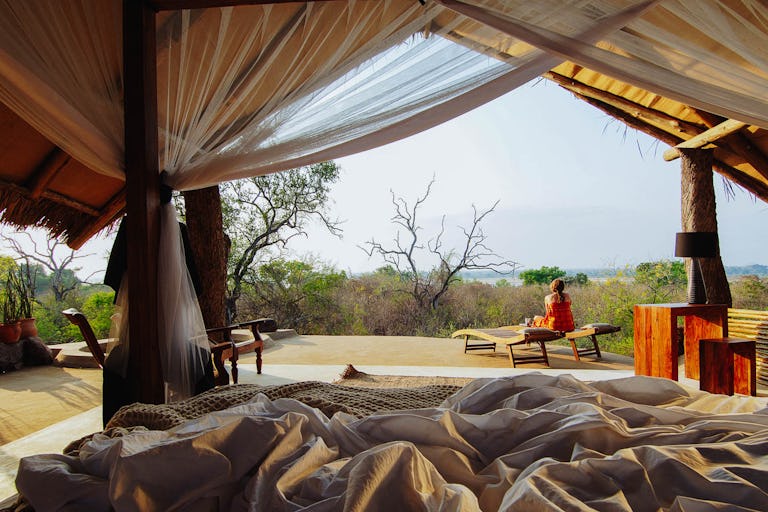
Combine big game, walking expeditions and a dash of adventure for a perfectly authentic safari.

Chat to an expert
Design your own trip
Customize one of our recommended trips or design your own from scratch

About Zimbabwe
Zimbabwe is like a bright phoenix, its wildlife arising out of a rocky past to once again become one of Africa's top safari attractions. The home of the great Victoria Falls in the north, the wild and beautiful Hwange National Park, serene Mana Pools, and pristine, unexplored tracts of land in the south and east, a Zimbabwe safari is for travellers looking for a touch of adventure. Safe to say, everyone who visits Zimbabwe returns raving about the friendly people, beautiful scenery and incredible, off-the-beaten-track wildlife experiences, so we suggest you go there now, before more people catch on…
Where to go in Zimbabwe
Why you'll love it
You can’t really sum up the magic of Zimbabwe in one sentence, but one thing that really stands out on a safari here is the quality of the guides, their warmth, friendliness and knowledge – one of the best ingredients of any safari, we’re sure you’ll agree!
Off the beaten track
It’s certainly not rustic, but for something a little different, don your glad rags and travel in serious style from Pretoria to Victoria Falls on Rovos Rail's luxury train. Keep your eyes peeled for wildlife in Hwange on the way – few people can say they’ve seen an elephant from a train, that’s for sure.
Something to think about
Since 1999, Zimbabwe has been plagued by unrest and dubious politics, and tourism has suffered badly. Today, it’s more than on the up (and probably one of the safest places to travel), so don’t let its bad reputation put you off.
Where to stay in Zimbabwe
Luxury safari in Zimbabwe
A luxury safari in Zimbabwe may not be the first thing that comes to mind, but prepare to be surprised. In wonderfully wild and remote locations, you'll find a collection of stunning camps and lodges with the likes of private pools, star beds and service that's second to none. In Zimbabwe, luxury safaris also come down to the range of activities there is to enjoy, which includes everything from boating on Lake Kariba to multi-day canoeing expeditions. With some of the most hospitable hosts in the business, luxury Zimbabwe vacations are often made complete by the people who make them possible.
When to go on a Zimbabwe safari
Visit Zimbabwe in the winter dry season from May to October and you can expect blue skies and sunny days, excellent game viewing and the pick of the accommodation when the smaller, more remote bush camps open in mid-May. The season gets progressively drier and hotter and in September and October, the temperatures can reach up to 40 degrees but the game viewing at this time of year is unrivalled. If you choose to visit from November to April in the summer green season months, the weather in Zimbabwe may include a rainstorm or two but they shouldn’t stop you from enjoying the activities. Game viewing is still excellent and you’ll see plenty of new born babies, but be warned that some of the smaller camps close during these months due to accessibility issues. At Vic Falls, the water level is highest from January up until May/June but white-water rafting (and the Devil’s Pool) is best from August to December.
Wildlife in Zimbabwe
Show all wildlife
Zimbabwe Safaris and Holidays - Need to know
Essential information before you leave
Getting to Zimbabwe
Zimbabwe has two major international airport; Victoria Falls (VFA) and Harare (HRE). These are the hubs for most airlines arriving from the US and Europe. There are various domestic airports and airfields connecting all major towns and safari destinations in Zimbabwe, and to other destinations in Africa.
Depending on your arrival time you may have to overnight before catching your connecting flight to your first safari camp the next day.
International flights
We would recommend booking your flights to Zimbabwe online in order to get the best rates. If you need any help or advice please let us know.
Domestic flights and transfers
Connecting between all the locations on your trip may necessitate a variety of modes: light aircraft charters, domestic commercial flights and road transfers. Please review the inclusions and exclusions on your specific trip page for details. If you need help understanding the best flights to book, please let us know.
From the moment that you land in Zimbabwe you will be greeted and assisted to your onward connections. You will be looked after from that point on until you are transferred back to the airport in time for your departure flight.
Health & Safety on a Zimbabwe safari
Please consult your personal physician and/or a travel clinic preferably 6 weeks prior to your departure. Vaccine requirements vary based on your country of origin and your travel itinerary and your previous vaccination history. It is best to consult with your physician or the CDC website for guidelines.
Important vaccinations to consider and which may either be required or recommended are: Yellow Fever, Typhoid, Hepatitis A & B and Cholera, among others. Please always carry your "International Certificate of Vaccination or Prophylaxis (ICVP)" (or "Yellow Card") with you.
Malaria
We advise that you consult a medical practitioner at least six weeks prior to travel. Malaria is present in most areas of Zimbabwe and is considered high risk, including Victoria Falls and Hwange National Park. The highest risk of transmission is during the rainy season from October to May. It is strongly advisable to take malaria prophylactics before, during and after your visit if you are visiting a known malarial region. Please consult a medical professional regarding which prophylactics will be suitable for you.
In addition to the recommendations of your travel clinic or physician, you may also consider the following proactive preventative measures:
● Apply insect repellent to exposed skin. Recommended repellents contain 20-35% DEET but it is a very virulent repellent, and should be used cautiously.
● Wear long-sleeved clothing and long pants at dawn and dusk, as well as closed shoes.
● Use a mosquito net if your tent or room isn't screened or air-conditioned; and spray insecticide or burn a mosquito coil before going to bed.
If you come down with flu-like symptoms either during or within four to six weeks after your visit to a malaria area, seek a doctor's advice immediately and let him/her know that you have been in a malaria area.
You can also visit www.malaria.org.za for more information.
Yellow Fever
There is no risk of Yellow Fever in Zimbabwe; however, vaccination is required for travellers who are arriving from, or have transited through, countries with risk of Yellow Fever transmission (e.g. Kenya, Uganda, Rwanda or elsewhere worldwide). This requirement can change unexpectedly, therefore, we recommend carrying a Yellow Fever card with you at all times.
Communication
Zimbabwe country code: +263
Calling overseas from Zimbabwe:
From a landline dial 00 followed by the country code plus area code and number.
e.g. USA: 00 1 910 795 1048
When calling from a cell phone dial + prefix followed by the country code plus area code and number. e.g. USA: + 1 910 795 1048
Money & Gratuities in Zimbabwe
Money
The currency we would recommend using in Zimbabwe is the US dollar. You can convert money to USD at a bank or Forex Bureau prior to departure. When in Zimbabwe, you can withdraw from a bank or ATM, which are widely available in the larger airports and towns. Please check with your bank for charges and advice when using international ATMs. The ATM's do occasionally run dry, so have some cash handy just in case. VISA and Mastercard are the most widely accepted credit cards. American Express has limited to no coverage. It is advisable to have some cash in small denominations for smaller shops, stalls and gas stations. IMPORTANT: When bringing in foreign currency (e.g. USD, GBP, EUR), be sure to have the new format with no damage or marks.
Gratuities
Gratuities are not compulsory or expected; rather it is a reward for excellent service. If you are pleased with the service you receive, you are more than welcome to tip your guide or the staff. Tipping is usually done at the end of your stay. You may tip the staff individually, give the tip to the manager to distribute, or do both. Tips can be made in USD, GBP or EUR.
Gratuities suggestions:
Safari camp or city lead guide: $15 - $20 per person per day
Transfer drivers (e.g. in cities or between the airport and hotel/lodge): $5 per person per transfer
Porter: $1 per bag
Ranger or any “ancillary” guides on ad-hoc basis for a specific activity: $5 - $10 per person per activity
General camp staff (put in a central box in each camp’s main area): $10 - $15 per person per day
Waitstaff in a city restaurant: 10% - 15% (large group may incur automatic service charge - please check)
Travel Insurance for Zimbabwe
Insurance
It is a condition of booking that you carry the correct comprehensive travel and medical insurance to cover yourself, as well as any dependents/travelling companions for the duration of your trip. This insurance should include cover in respect of, but not limited to, the following eventualities:
Compulsory Insurance:
a. Emergency evacuation expenses
b. Medical expenses
c. Repatriation expenses
Recommended Insurance:
a. Cancellation or curtailment of trip
b. Damage/theft/loss of personal luggage, money and goods
Zimbabwe safari visas
As a general precaution, we recommend you make several copies of your travel-related documents (passport, traveller’s cheques, credit cards, itinerary, airline tickets, insurance cover, visas, etc). Leave one set at home, and bring another set with you, and place it in a location separate from your originals.
Generally speaking, most nationalities require a visa to enter Zimbabwe. The requirements vary per country as do whether it can be acquired on arrival. Passports MUST be valid for at least six months from your departure from Zimbabwe to home. There must be at least TWO (we recommend four) consecutive blank VISA pages in the passport (not endorsement pages). Zimbabwe’s immigration control is very strict, and is known to deny entry to those not meeting the requirements.
Visa requirements change regularly and it is best to contact your local Zimbabwean embassy regarding the most recent rules. Visa Central is also a good resource.
If you are visiting Zimbabwe and Zambia on your trip we recommend purchasing the KAZA UNIVISA which costs USD 50 and allows tourists to obtain one visa to visit both countries multiple times. The visa is valid for up to 30 days in any given period of 12 months, as long as the holder remains within Zambia and Zimbabwe. It also covers those who visit Botswana for day-trips through Kazungula Borders.
What to pack for a Zimbabwe safari
Climate
The weather in Zimbabwe is generally pleasant throughout the year with warm to hot days, and cool to warm nights. November to April are the summer months (which is the rainy season), while winter is from May to August (which usually brings dry weather). September and October are very hot and very dry. The winter months from May to August inclusive, can bring freezing temperatures (below 0°C sometimes) in the early morning and evenings.
Dress Code
Conservative casual clothing is acceptable throughout Zimbabwe, though it is recommended that revealing clothing be avoided. Camouflage clothing is not recommended for travel in southern African countries (camouflage or military-inspired clothing is prohibited when travelling in Zimbabwe).
When on safari in Zimbabwe, light layers of clothing in neutral safari colours of green, khaki and beige are the best items to bring with you, as well as a warmer jacket or fleece for the colder evenings. A hat is also a must have! Bright and dark colours like yellow, red and purple are discouraged, or sometimes not allowed (on a bush walk) if you are going on safari.
What to Pack
Preparation and packing for any holiday is important but never more so than when you visit remote areas in Africa. Once on safari you will find it very hard to pick up that odd item you thought your partner had packed! What follows is by no means an exhaustive list but is designed to point you in the right direction.
• Layers - long and short sleeve shirts and trousers
• A warm fleece or jumper
• A lightweight waterproof jacket
• Comfortable but sturdy shoes
• Flip-flops
• Swimming costume (Bathing suit)
• A hat or baseball cap
• Sunglasses
• Sunscreen – a must!
• Toiletries – most camps will provide shampoo, shower gel and soap
• A small torch
• Spare batteries, plug adaptors and charging equipment
• A good pair of Binoculars (8x40/8x42 is recommended)
• Books or a fully loaded Kindle / iPad for siesta time
Most camps and lodges in Zimbabwe will have a small medical and first aid kit, but we recommend bringing your own supply of essentials - cough medicine, plasters, vitamins, aspirin and paracetamol, and anything else you use on a regular basis.
Camera Equipment (for the enthusiasts)
• A telephoto lens (200/300mm)
• Flash and fast film (400 ASA) for night photography
• Lots of film (64,100,200,400 ASA) if using an SLR camera
• Spare memory cards for digital cameras
• Camera cleaning equipment and a good dust proof bag
• Bring spare batteries as although you may recharge your batteries at the camps, charging capacity can be limited
Luggage
Please check with your airlines for the specific luggage restrictions relevant to your flight schedule. Many international airlines have a baggage allowance of 20kgs or more per person and commercial airlines generally permit two (2) pieces of checked luggage per person. The carry-on bag must be of such dimensions and weight as set by the airlines.
Luggage Restrictions on Internal Flights
Please be advised that on light aircraft flights, luggage is limited to one SOFT duffle bag per person with a maximum weight of 15kg/33 lbs. No hardshell bags are permitted.
Electricity
In Zimbabwe, the standard voltage is 230 V, the frequency is 50 Hz and current and outlets are square 3-pin plugs. You can use your electric appliances in Zimbabwe, if the standard voltage in your country is in between 220 - 240V (as is in the UK, Europe, Australia and most of Asia and Africa). If the standard voltage in your country is in the range of 100 V - 127V (as is in the US, Canada and most South American countries), you will need a voltage converter in Zimbabwe.
Zimbabwe in the blog
What our guests are saying
Design your own trip
Choose a destination, pick your properties, and we'll do the rest
Design a tripNeed a hand?
hello@timbuktutravel.com +44 (0)203 8083 860 +1 (646) 542 0667 +27 (0)21 201 7253 Live chat
,url-https%3A%2F%2Fwaybird.imgix.net%2Fimages%2Fmap%2Fmarker_red_shadow.png%3Fw%3D44(27.051362,-18.954727),url-https%3A%2F%2Fwaybird.imgix.net%2Fimages%2Fmap%2Fmarker_red_shadow.png%3Fw%3D44(29.436730,-15.847263),url-https%3A%2F%2Fwaybird.imgix.net%2Fimages%2Fmap%2Fmarker_red_shadow.png%3Fw%3D44(28.612872,-16.946348),url-https%3A%2F%2Fwaybird.imgix.net%2Fimages%2Fmap%2Fmarker_red_shadow.png%3Fw%3D44(32.038973,-21.463300),url-https%3A%2F%2Fwaybird.imgix.net%2Fimages%2Fmap%2Fmarker_red_shadow.png%3Fw%3D44(28.519195,-20.543383),url-https%3A%2F%2Fwaybird.imgix.net%2Fimages%2Fmap%2Fmarker_red_shadow.png%3Fw%3D44(31.044965,-17.855225),url-https%3A%2F%2Fwaybird.imgix.net%2Fimages%2Fmap%2Fmarker_red_shadow.png%3Fw%3D44(32.832810,-18.721186)/auto/620x353@2x?access_token=pk.eyJ1IjoidGltYnVrdHV0cmF2ZWwiLCJhIjoiY2poMGw1eHpkMmRkbDJ6bW8xYWZ5OGpjYyJ9.PYvAO7lUJ40SOpGvwmQLqw&attribution=false&logo=false)

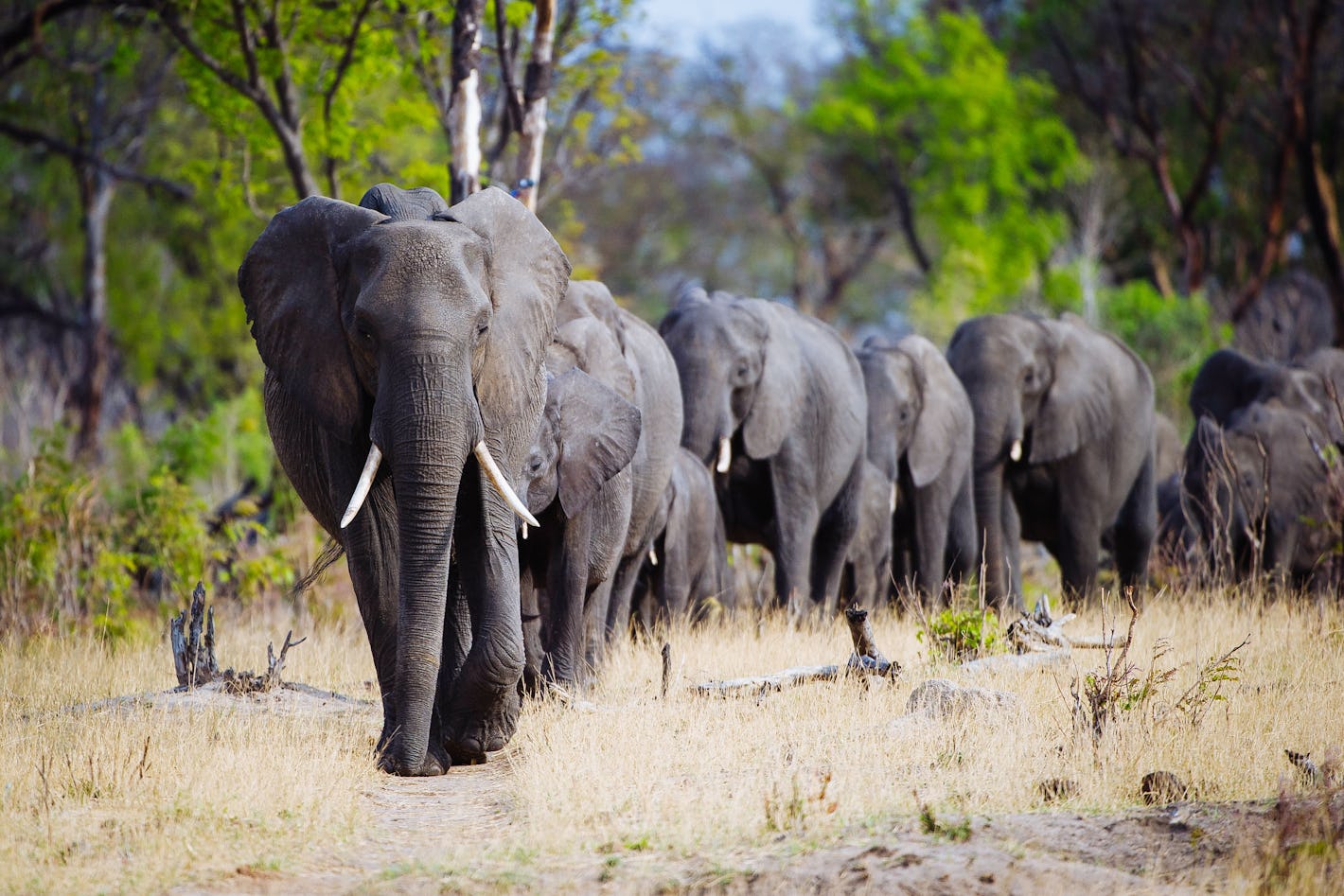
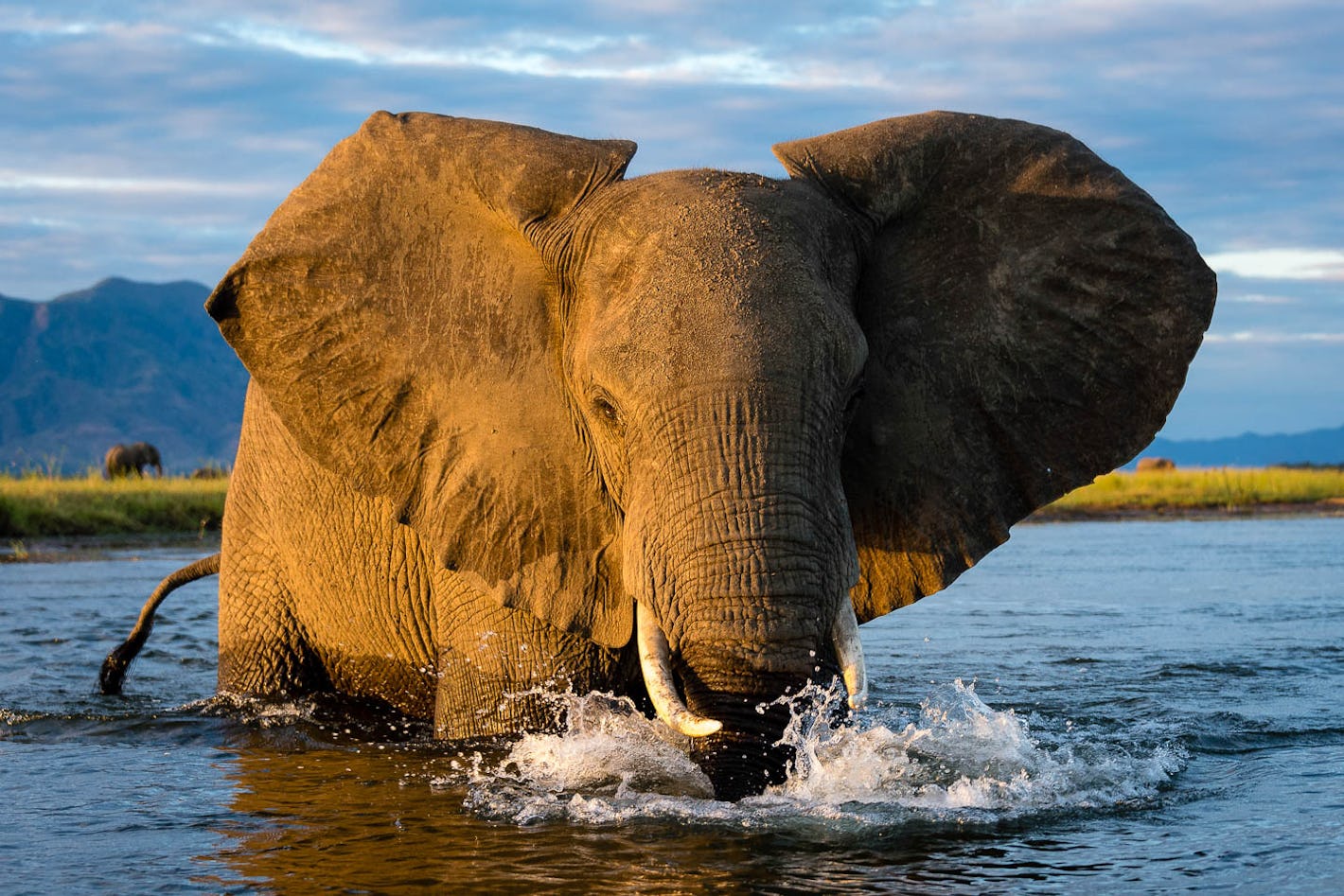






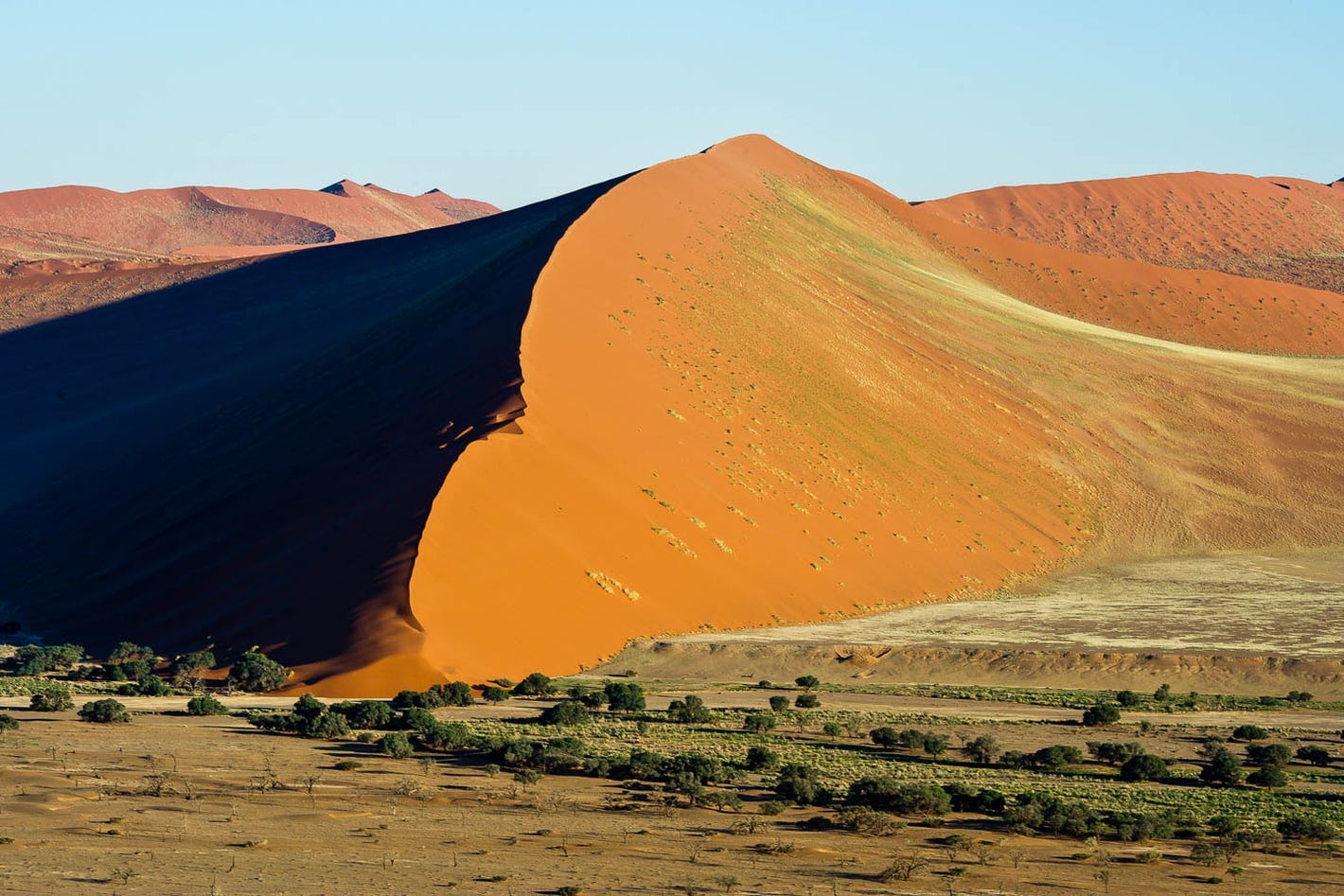
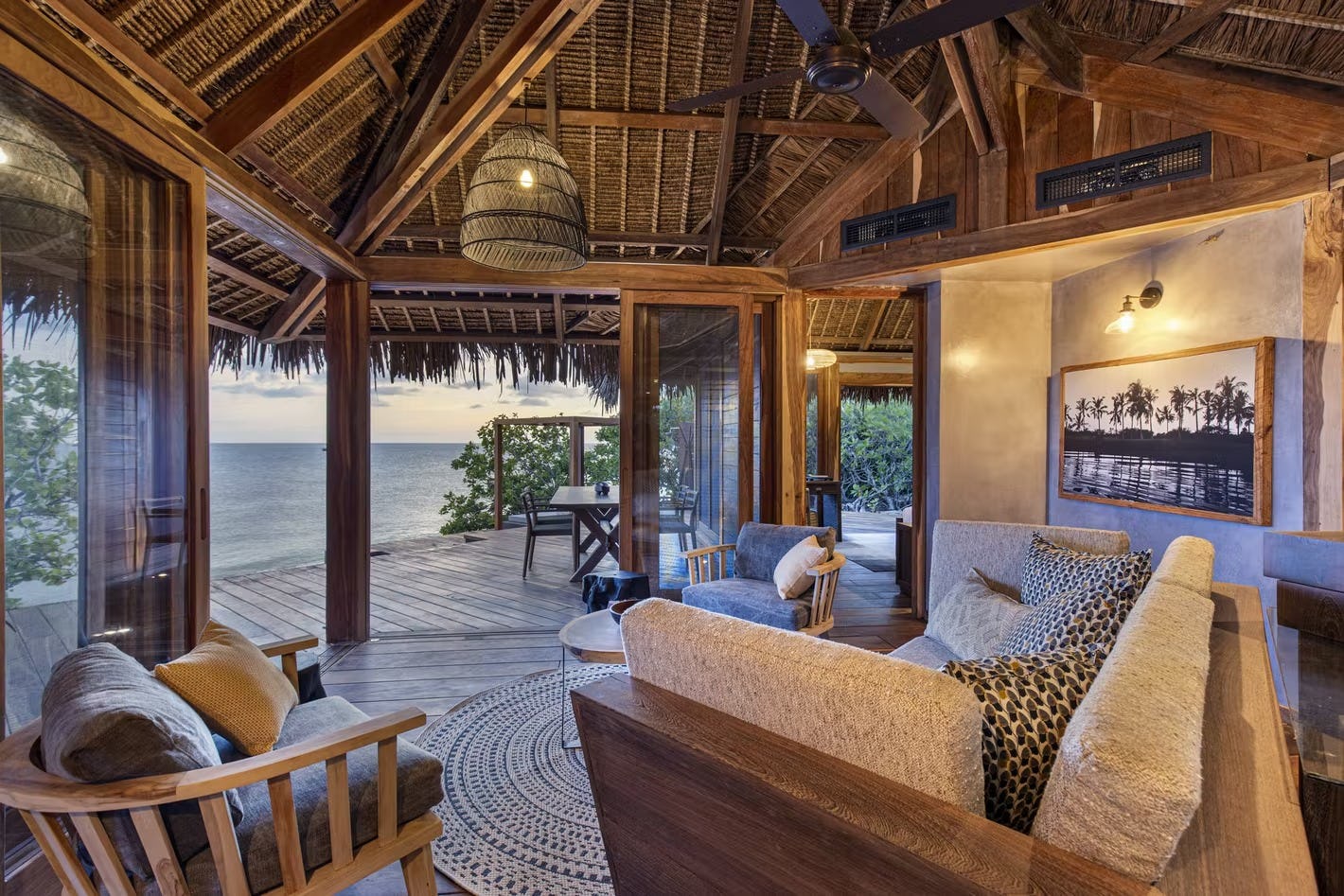













,url-https%3A%2F%2Fwaybird.imgix.net%2Fimages%2Fmap%2Fmarker_yellow.png%3Fw%3D22(36.923886,-1.322705),url-https%3A%2F%2Fwaybird.imgix.net%2Fimages%2Fmap%2Fmarker_blue.png%3Fw%3D22(36.918046,-1.341462),url-https%3A%2F%2Fwaybird.imgix.net%2Fimages%2Fmap%2Fmarker_blue.png%3Fw%3D22(30.064840,-1.946951),url-https%3A%2F%2Fwaybird.imgix.net%2Fimages%2Fmap%2Fmarker_blue.png%3Fw%3D22(29.615676,-1.438784),url-https%3A%2F%2Fwaybird.imgix.net%2Fimages%2Fmap%2Fmarker_blue.png%3Fw%3D22(36.803516,-1.327864),url-https%3A%2F%2Fwaybird.imgix.net%2Fimages%2Fmap%2Fmarker_blue.png%3Fw%3D22(36.859929,-0.042587),url-https%3A%2F%2Fwaybird.imgix.net%2Fimages%2Fmap%2Fmarker_blue.png%3Fw%3D22(36.052233,-0.437849),url-https%3A%2F%2Fwaybird.imgix.net%2Fimages%2Fmap%2Fmarker_blue.png%3Fw%3D22(35.060199,-1.450359),url-https%3A%2F%2Fwaybird.imgix.net%2Fimages%2Fmap%2Fmarker_yellow.png%3Fw%3D22(36.923886,-1.322705)/auto/72x72@2x?access_token=pk.eyJ1IjoidGltYnVrdHV0cmF2ZWwiLCJhIjoiY2poMGw1eHpkMmRkbDJ6bW8xYWZ5OGpjYyJ9.PYvAO7lUJ40SOpGvwmQLqw&attribution=false&logo=false)
,url-https%3A%2F%2Fwaybird.imgix.net%2Fimages%2Fmap%2Fmarker_yellow.png%3Fw%3D22(25.837811,-18.094167),url-https%3A%2F%2Fwaybird.imgix.net%2Fimages%2Fmap%2Fmarker_blue.png%3Fw%3D22(25.818166,-17.927454),url-https%3A%2F%2Fwaybird.imgix.net%2Fimages%2Fmap%2Fmarker_blue.png%3Fw%3D22(26.483370,-18.871828),url-https%3A%2F%2Fwaybird.imgix.net%2Fimages%2Fmap%2Fmarker_blue.png%3Fw%3D22(27.461339,-19.078352),url-https%3A%2F%2Fwaybird.imgix.net%2Fimages%2Fmap%2Fmarker_yellow.png%3Fw%3D22(25.837811,-18.094167)/auto/72x72@2x?access_token=pk.eyJ1IjoidGltYnVrdHV0cmF2ZWwiLCJhIjoiY2poMGw1eHpkMmRkbDJ6bW8xYWZ5OGpjYyJ9.PYvAO7lUJ40SOpGvwmQLqw&attribution=false&logo=false)
,url-https%3A%2F%2Fwaybird.imgix.net%2Fimages%2Fmap%2Fmarker_yellow.png%3Fw%3D22(36.923886,-1.322705),url-https%3A%2F%2Fwaybird.imgix.net%2Fimages%2Fmap%2Fmarker_blue.png%3Fw%3D22(36.918046,-1.341462),url-https%3A%2F%2Fwaybird.imgix.net%2Fimages%2Fmap%2Fmarker_blue.png%3Fw%3D22(35.035357,-1.234536),url-https%3A%2F%2Fwaybird.imgix.net%2Fimages%2Fmap%2Fmarker_yellow.png%3Fw%3D22(36.923886,-1.322705)/auto/72x72@2x?access_token=pk.eyJ1IjoidGltYnVrdHV0cmF2ZWwiLCJhIjoiY2poMGw1eHpkMmRkbDJ6bW8xYWZ5OGpjYyJ9.PYvAO7lUJ40SOpGvwmQLqw&attribution=false&logo=false)
,url-https%3A%2F%2Fwaybird.imgix.net%2Fimages%2Fmap%2Fmarker_yellow.png%3Fw%3D22(32.436430,0.042443),url-https%3A%2F%2Fwaybird.imgix.net%2Fimages%2Fmap%2Fmarker_blue.png%3Fw%3D22(32.467550,0.055645),url-https%3A%2F%2Fwaybird.imgix.net%2Fimages%2Fmap%2Fmarker_blue.png%3Fw%3D22(31.573253,2.290126),url-https%3A%2F%2Fwaybird.imgix.net%2Fimages%2Fmap%2Fmarker_blue.png%3Fw%3D22(30.394046,0.431828),url-https%3A%2F%2Fwaybird.imgix.net%2Fimages%2Fmap%2Fmarker_blue.png%3Fw%3D22(29.899825,-0.188428),url-https%3A%2F%2Fwaybird.imgix.net%2Fimages%2Fmap%2Fmarker_blue.png%3Fw%3D22(29.711680,-0.619822),url-https%3A%2F%2Fwaybird.imgix.net%2Fimages%2Fmap%2Fmarker_blue.png%3Fw%3D22(29.616627,-0.986596),url-https%3A%2F%2Fwaybird.imgix.net%2Fimages%2Fmap%2Fmarker_yellow.png%3Fw%3D22(32.436430,0.042443)/auto/72x72@2x?access_token=pk.eyJ1IjoidGltYnVrdHV0cmF2ZWwiLCJhIjoiY2poMGw1eHpkMmRkbDJ6bW8xYWZ5OGpjYyJ9.PYvAO7lUJ40SOpGvwmQLqw&attribution=false&logo=false)
,url-https%3A%2F%2Fwaybird.imgix.net%2Fimages%2Fmap%2Fmarker_yellow.png%3Fw%3D22(36.923886,-1.322705),url-https%3A%2F%2Fwaybird.imgix.net%2Fimages%2Fmap%2Fmarker_blue.png%3Fw%3D22(36.702587,-1.341083),url-https%3A%2F%2Fwaybird.imgix.net%2Fimages%2Fmap%2Fmarker_blue.png%3Fw%3D22(36.982322,0.018325),url-https%3A%2F%2Fwaybird.imgix.net%2Fimages%2Fmap%2Fmarker_blue.png%3Fw%3D22(32.455046,0.035545),url-https%3A%2F%2Fwaybird.imgix.net%2Fimages%2Fmap%2Fmarker_blue.png%3Fw%3D22(29.614122,-0.997344),url-https%3A%2F%2Fwaybird.imgix.net%2Fimages%2Fmap%2Fmarker_yellow.png%3Fw%3D22(32.436430,0.042443)/auto/72x72@2x?access_token=pk.eyJ1IjoidGltYnVrdHV0cmF2ZWwiLCJhIjoiY2poMGw1eHpkMmRkbDJ6bW8xYWZ5OGpjYyJ9.PYvAO7lUJ40SOpGvwmQLqw&attribution=false&logo=false)
,url-https%3A%2F%2Fwaybird.imgix.net%2Fimages%2Fmap%2Fmarker_yellow.png%3Fw%3D22(30.135109,-1.963502),url-https%3A%2F%2Fwaybird.imgix.net%2Fimages%2Fmap%2Fmarker_blue.png%3Fw%3D22(30.064840,-1.946951),url-https%3A%2F%2Fwaybird.imgix.net%2Fimages%2Fmap%2Fmarker_blue.png%3Fw%3D22(29.537320,-1.415555),url-https%3A%2F%2Fwaybird.imgix.net%2Fimages%2Fmap%2Fmarker_blue.png%3Fw%3D22(35.123917,-2.557361),url-https%3A%2F%2Fwaybird.imgix.net%2Fimages%2Fmap%2Fmarker_blue.png%3Fw%3D22(35.658875,-2.963298),url-https%3A%2F%2Fwaybird.imgix.net%2Fimages%2Fmap%2Fmarker_yellow.png%3Fw%3D22(37.074444,-3.429167)/auto/72x72@2x?access_token=pk.eyJ1IjoidGltYnVrdHV0cmF2ZWwiLCJhIjoiY2poMGw1eHpkMmRkbDJ6bW8xYWZ5OGpjYyJ9.PYvAO7lUJ40SOpGvwmQLqw&attribution=false&logo=false)
